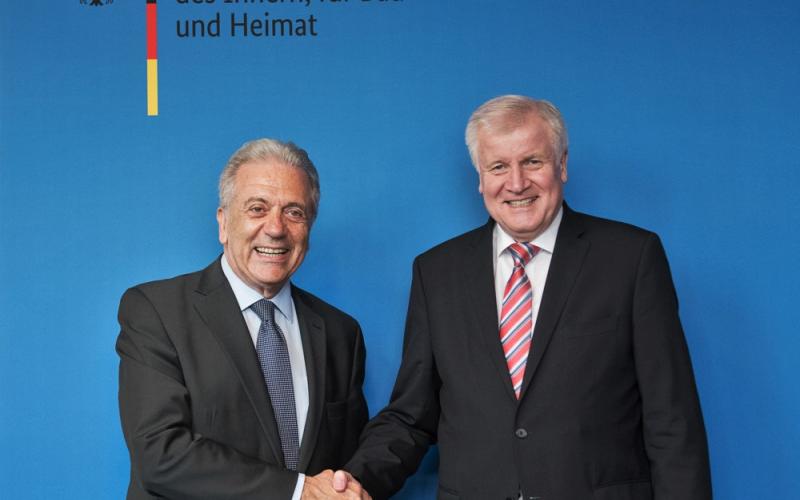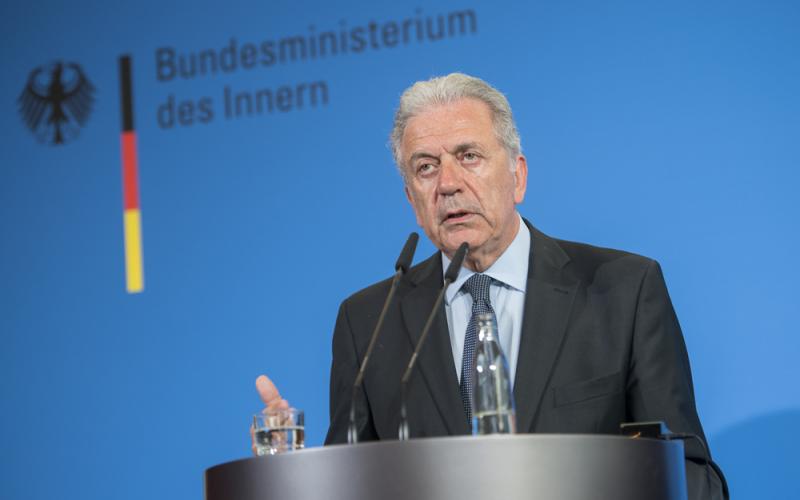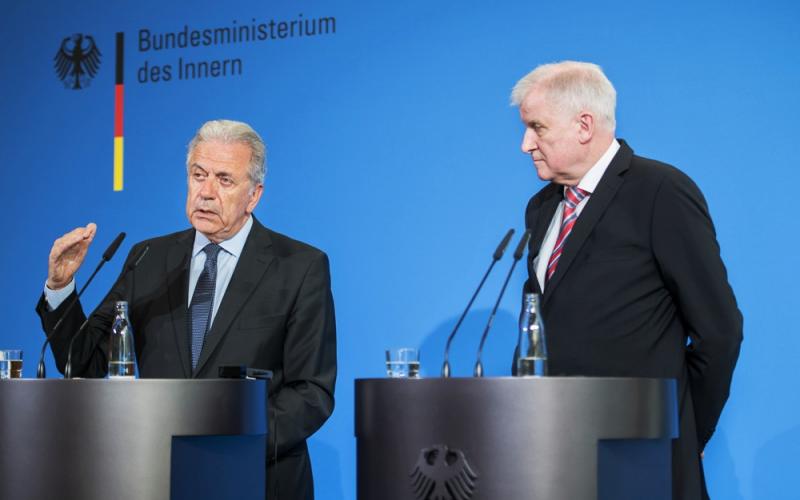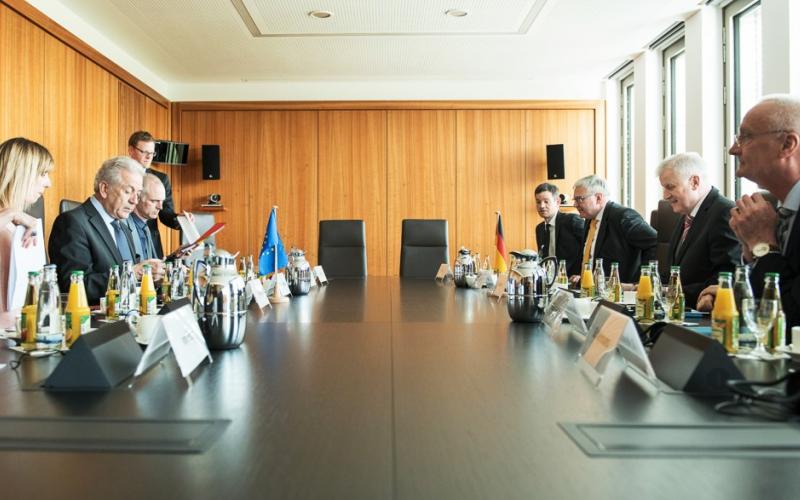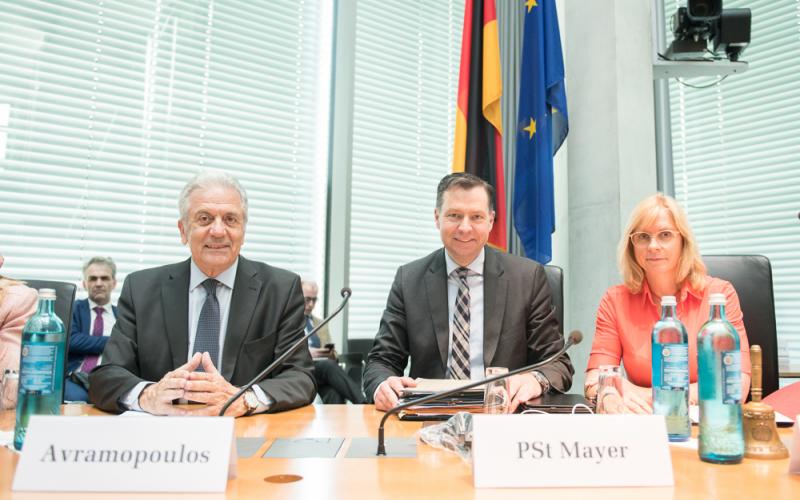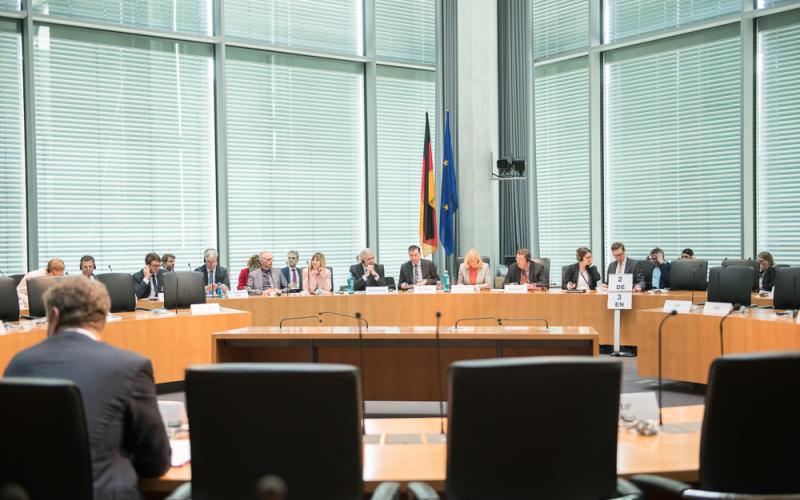Dear all,
It is good to be back in Berlin. I had a very fruitful exchange on migration and borders with Interior Minister Horst Seehofer today.
Managing migration better is a top priority for the European Commission and it is also a top priority for Germany. Over the past three years, we have built – with Germany and with all other EU Member States – a truly European approach on migration.
We have already achieved a lot. Definitely we are not where we were three years ago and we all remember what happened in the years 2015 and 2016. At that time, Europe was not prepared to tackle such an unprecedented phenomenon but things have changed since then. And I want to tell you and stress that the role of Germany from the very beginning was very constructive and I would like to praise Germany for having pioneered in order to finally adopt a common migration policy.
The clear and consistent decrease in irregular arrivals overall has been confirmed throughout 2017 and the first months of 2018. Asylum applications in the EU went down by 43% in 2017.
However, Minister Seehofer and I share the same assessment: the situation remains volatile and we need to do more.
First of all, we need to continue working with partner countries to better manage the migratory flows and to ensure cooperation on readmission.
Effectively returning those who have no right to stay in Europe is key. The European Border and Coast Guard Agency is there to support Member States in their efforts and, as I told Minister Seehofer, I welcome Germany’s active participation in return operations organised by the agency.
Secondly, we need to further strengthen the protection of our external borders. This is a shared priority of Germany and of the European Commission. This is paramount to fight irregular migration, but also to ensure our internal security and to safeguard our internal mobility within the Schengen area.
This is why we are reinforcing the European Border and Coast Guard agency and stepping up controls at the EU’s external borders.
I also want to take the opportunity to once again welcome the decision taken by the German authorities to stop systematic border controls at German airports for passengers arriving from Greece.
The close cooperation between the German and Greek police authorities has been instrumental in making this possible and I want to congratulate both sides. This is a good example of how two Member States can cooperate effectively.
We all want to return to a normalisation of Schengen. Of course I understand that there are concerns. We will work together to find alternative solutions to ensure the safety and the security of our citizens.
Thirdly, I am glad to count on Germany in making progress together towards the reform of our common asylum system. Europe needs a common asylum system because we don’t know what the future is holding for us. We need to be better prepared. But always respecting European standards.
It has to become more solid, fairer and resilient for the future. We need to make sure the Leaders can reach an ambitious agreement in June this year.
Lastly, we discussed how to further develop safe and legal pathways to Europe for those who need protection.
I welcome that Germany has already pledged 10,200 new resettlement places. Thanks to Germany, we have already reached and surpassed our set goal of 50,000 resettlements for the next two years. This has to go hand in hand with other efforts: return, reducing irregular migration and stronger borders.
2018 and 2019 will be important years for Europe, not least with the European elections in sight.
Germany is an important partner for us, in addressing our citizens’ concerns but also in reassuring them on the way forward. Because this way forward can only be together and European.

